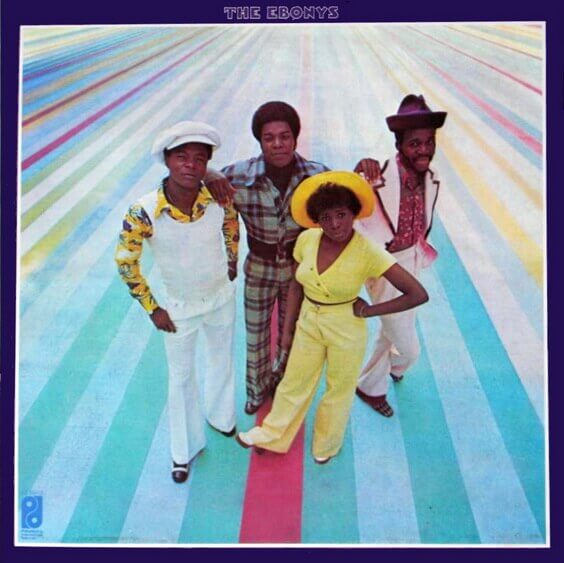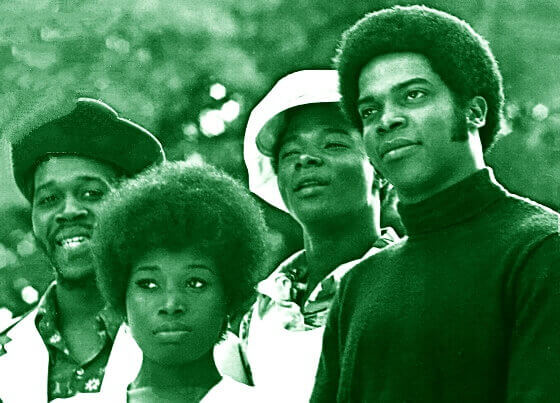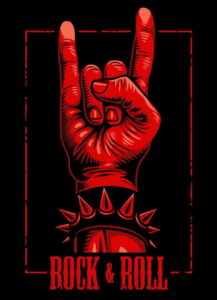Исполнитель: The Ebonys
Откуда: USA
Альбом: The Ebonys
Год выхода: 1973
Жанр: Soul
Формат: MP3 CBR 320
Размер архива: 95.4 МB
During the seventies, Philadelphia International Records was one of the most successful record labels in America. Without a doubt, it was one of Philly Soul’s greatest label. Between 1972 and 1975, it seemed Philadelphia International Records could do no wrong. Artists like The O’Jays, Harold Melvin and The Blue Notes, The Three Degrees, Billy Paul and M.F.S.B. transformed Gamble and Huff’s label into one of soul’s greatest ever labels. However, Gamble and Huff weren’t invincible. Like other successful producers, they released albums that weren’t a commercial success. Often, many of these albums deserved to been much bigger commercial successes. Sometimes, looking back, it’s hard to believe that an album wasn’t a much bigger success. A case in point is The Ebonys, a New Jersey group, founded in 1968 and discovered by Leon Huff. The Ebonys were a quartet, comprising Jenny Holmes, David Beasley, James Tuten and Clarence Vaughan. They released their debut album The Ebonys in 1973, five years after The Ebonys were formed in New Jersey. Great things were expected of The Ebonys, but sadly, that wasn’t to be.
The Ebonys were formed back in 1968, in New Jersey, when Jenny Holmes, David Beasley, James Tuten and Clarence Vaughan decided to form a group. They spent time honing their sound, which many people have compared to The Dells. Their styles are similar, David Beasley’s lead baritone and the soaring falsetto that’s an answering second lead. By 1969, The Ebonys were ready to record a single. They released Can’t Get Enough, arranged by Art Freeman and produced by Ron Carson. Can’t Get Enough was released on the Soul Clock label. Although that was The Ebonys debut single, two years later, they’d released their first single for Philadelphia International Records. Success it seemed was heading their way.
Leon Huff discovered The Ebonys, and realizing the group’s potential, signed them to Philadelphia International Records. Their first single for Philadelphia International Records was You’re the Reason Why, released in 1971. This was just the year before Philadelphia International Records started its run of releasing commercially successful and critically acclaimed albums. You’re the Reason Why reached number fifty-one in the US Billboard 100 and number ten in the US R&B Charts.Determination didn’t fare as well in 1971, reaching number forty-six in the US R&B Charts. Despite this, given the early success that The Ebonys enjoyed, Gamble and Huff must have thought that here was a group that could help their nascent label make the next step. By the time The Ebonys released their debut album, The Ebonys Philadelphia International Records was a very different label.
By the time work started on The Ebonys debut album, Philadelphia International Records was now beginning its journey to becoming one of the most successful labels of the seventies. Two of Philadelphia International Records’ 1972 releases, Billy Paul’s 360 Degrees of Billy Paul and The O’Jays’ Back Stabbers had proved game-changers. Commercial success and critical acclaim had come their way. Maybe some of this would rub off on The Ebonys?
For The Ebony’s debut album The Ebonys, Gamble and Huff cowrote four tracks, Hook Up and Get Down, I’m So Glad I’m Me, Nation Time and You’re the Reason Why. They also cowrote Sexy Ways with Carl Gilbert. Leon Huff wrote It’s Forever and cowrote I’ll Try with McFadden and Whitehead. Phil Terry, T.G. Conway and Theodore Life cowrote Life In the Country. Together with a cover of I Believe, this became The Ebonys debut album, The Ebonys, which was recorded at Sigma Sound Studios.
Recording of The Ebonys took place at Joe Tarsia’s Sigma Sound Studios, with M.F.S.B. accompanying The Ebonys. This included the Baker, Harris, Young rhythm section, guitarist Bobby “Electronic” Eli and T.J. Tindall, They were joined by Lenny Pakula on Hammond organ, percussionist Larry Washington, vibes virtuoso Vince Montana Jr and strings and horns courtesy of Don Renaldo. Arrangers included Bobby Martin, Ron Baker, Lenny Pakula, Thom Bell and T.G. Conway. Producers included Gamble and Huff plus the songwriting and production team of Phil Terry, T.G. Conway and Theodore Life. Once The Ebonys was recorded, the album was released in 1973.
It’s Forever was chosen as the lead single, reaching number sixty-eight in the US Billboard 100 and number fourteen in the US R&B Charts in 1973. The Ebonys reached a respectable number thirty-three in the US R&B Charts. What was disappointing was The Ebonys never entered the US Billboard 200. I Believe was the final single released from The Ebonys. It was released in 1974, reaching number thirty-four in the US R&B Charts. Sadly, that was the extent of the success The Ebonys enjoyed at Philadelphia International Records. After the early promise of 1971s You’re the Reason Why, The Ebonys was their only album released Philadelphia International Records. However, is The Ebonys another of the hidden gems of Philadelphia International Records’ back catalogue? That’s what I’ll tell you, when I tell you about the music on The Ebonys.
Opening The Ebonys is the Gamble and Huff penned Hook Up and Get Down, arranged by Lenny Pakula. Bursts of a thunderous Baker, Harris, Young rhythm section and growling horns add drama, reminding me of Edwin Starr’s War. They’re joined by stabs of Lenny Pakula’s Hammond organ, that give way to James’ urgent, powerful lead vocal. It’s delivered with drama and has a real presence. Horns growl, strings swirl, the rhythm section provide a powerful backdrop and Vince Montana Jr’s vibes provide a subtle contrast. When the vocal changes hands, the other Ebonys demonstrate their talents and vocal prowess. Later, Norman Harris lays down one of his trademark guitar lines, as the arrangement grows in power, drama and urgency. It’s the perfect opener to The Ebonys, grabbing you’re attention, resulting in you hungrily wanting to hear more, much more.
It’s Forever sees Bobby Martin one of Philadelphia International Records’ best arrangers produce this Leon Huff song. The tempo drops, the style changes and immediately you take notice. Just a piano, Vince Montana Jr’s vibes and lush strings combine, before bursts of rasping horns add drama to the beauty. Tender harmonies sweep in, adding to the beauty and emotion. They’re accompanied by Ron Baker’s moody, pensive bass. Then James “Bootie” Tutenlead vocal enters. He has a similar style and presence to Teddy Pendergrass. His baritone takes command of the song, growing power and raw emotion. This is no one man band. Each member plays their part, their contrasting vocal styles complimenting the other, especially the answering falsetto second lead. Together, their styles unite, becoming one, playing their part in what is one of the most beautiful, moving songs on The Ebonys. No wonder it was chosen as the lead single.
Life In the Country was penned and produced by Phil Terry, T.G. Conway and Theodore Life. It has a much more understated, thoughtful sound. Sound effects including running water and birds whistling join a subtle guitar as cinematic strings the arrangement unfolds. The tender, heartfelt vocal ponders the problems of country and city life. He’s joined by harmonies that compliment and magnify the beauty of his lead vocal. Strings and the rhythm section play their part in creating an arrangement that’s pensive, melancholy and quite beautiful, and is the perfect backdrop for The Ebonys to showcase their vocal talents.
Sexy Ways closes Side One Of The Ebonys. This was a collaboration between Gamble and Huff and Carl Gilbert. Again, Bobby Martin arranges a track which sees The Ebonys change tack. This is a real fusion of genres. Soul, funk, jazz and even gospel and doo-wop harmonies are revealed. James dynamic baritone soars, with elegant, gospel harmonies. A burst of Earl Young’s drums and M.F.S.B. kick loose. Horns, blaze, a powerful, Baker, Harris, Young rhythm section, Hammond organ and percussion combine. Flourishes of piano and doo-wop harmonies are added, as James ensures the song swings, as he mixes sensuality, power and hooks aplenty, bookending Side One perfectly.
I’m So Glad I’m Me opens Side Two of The Ebonys, with Gamble and Huff writing and producing a track arranged by Thom Bell. This Philly Soul dream team don’t disappoint. Norman Harris’ jazzy guitar, percussion, cascading strings and braying horns are joined by punchy harmonies and then James’ impassioned please. His vocal grows in power and passion, while punchy, soaring harmonies with a sixties sound accompany him. M.F.S.B. play their part, ensuring this celebratory, uplifting slice of soul opens Side Two of The Ebonys in style, with the help of three Philly Soul legends.
McFadden and Whitehead cowrote I’ll Try with Leon Huff, with Lenny Pakula arranging the song. From the opening bars, you realize a beautiful song is unfolding. Layers of slow, lush strings, a sprinkling of soaring harmonies, piano and the Baker, Harris, Young rhythm section combine. You await James’ heartfelt pleas. His vocal is reminiscent of Teddy Pendergrass, combining power and emotion, sometimes becoming a vamp. Tight, elegant and soulful harmonies join rasping horns, lush strings and the drama supplied by Baker, Harris, Young. When the soaring falsetto enters, that’s the clincher. The interplay between it and James’ lead is sheer emotion and beauty, becoming one, with the harmonies a beautiful added bonus. Why this song wasn’t released as a single seems a missed opportunity.
Nation Time is third of four Gamble and Huff songs on The Ebonys, and sees the tempo increase. There’s a real joyous sound, when the song bursts into life. Rasping horns, lush strings, keyboards and a powerful heartbeat courtesy Baker, Harris, Young rhythm section are responsible for this. Harmonies are tight, soaring soulfully and providing the perfect foil to James’ urgent, vampish delivery of Gamble and Huff’s message of unity. The longer the track progresses, the more impassioned The Ebonys’ message becomes, while M.F.S.B. provide a dramatic backdrop that reinforces this.
Ron Baker of the legendary Baker, Harris, Young rhythm section, arranged I Believe, giving this much covered song an emotive makeover. Waves of drama courtesy of Lenny Pakula’s Hammond organ, weeping strings, percussion and the Baker, Harris, Young rhythm section, join by Zach Zachary’s alto-saxophone. They provide the perfect backdrop for James’ inspired, impassioned reading of the lyrics. He combines emotion, drama and power, matched all the way by the other Ebonys. Their harmonies compliment his lead perfectly, as does M.F.S.B. It combines power and drama with beauty and a melancholy sound. Later, Ron uses Zach Zachary’s alto-saxophoneto good effect, using it to bring together the song together perfectly. The result is a transformation of an old song, becoming one that’s not celebratory and inspirational, but deeply moving.
Closing The Ebonys is You’re the Reason Why, where The Ebonys close the album on a high. Written and produced by Gamble and Huff, Thom Bell arranged a song that bursts dramatically and soon, joyously into life. Quivering strings, dramatic bursts of Earl Young’s drums, braying horns and soaring harmonies introduce David’s powerful, emotive vocal. Strings and harmonies reflect the emotion and happiness in his vocal. Vince Montana Jr, adds vibes, before the drama builds and builds. At the heart of the drama are the Baker, Harris, Young rhythm section, strings some stunning harmonies. Together, they provide the fitting accompaniment to James’ soul-baring vocal Magnus Opus, that brings The Ebonys to a dramatic, emotive crescendo.
While The Ebonys style was similar to The Dells, sadly, their music never enjoyed the same success. The combination of James “Bootie” Tuten’s powerful baritone, that’s reminiscent of Teddy Pendergrass and the answering falsetto second lead was a deliciously soulful, potent and effective combination, mainstream commercial success eluded The Ebonys. Their debut album The Ebonys is one of these albums that, despite there being nothing whatsoever wrong with the quality of the music, commercial success eluded them. Although The Ebonys reached number thirty-three in the US R&B Charts, and that they enjoyed several successful singles, they didn’t release another album on Philadelphia International Records.
Instead, their 1976 sophomore album, Sing About Life, was released on Buddah Records. Sadly, it didn’t even match the success of their debut album. Sing About Life was the last album The Ebonys would release. Their recording career was tragically short and it’s a case of what might have been. If commercial success was all about talent alone, then The Ebonys would have enjoyed a longer, more successful career and their 1973 debut album The Ebonys would’ve been critically acclaimed and commercially successful. That wasn’t to be the case, and in many ways, shows just how cruel a place the music industry can be. Like so many other albums, The Ebonys remains loved by a few, rather than by many, remains a cruel and ironic twist of fate. Standout Tracks: Hook Up and Get Down, It’s Forever, I’m So Glad I’m Me and I’ll Try.
Tracks:
01. Hook Up And Get Down — 3:24
02. It’s Forever — 7:17
03. Life In The Country — 6:15
04. Sexy Ways — 3:04
05. I’m So Glad I’m Me — 3:01
06. I’ll Try — 6:09
07. Nation Time — 4:56
08. I Believe — 4:30
09. You’re The Reason Why — 3:02
Personnel:
David Beasley — tenor vocal
Clarence Vaughan — tenor & baritone vocal
James Tuten — baritone vocal
Jennifer Holmes — female vocal
+
MFSB (Mother, Father, Sister, Brother) — session musicians
Theodore Life, Phil Terry, Talmadge G. Conway — producers (03)
Kenneth Gamble, Leon Huff — producers (01, 02, 04-09)





Muito obrigado Jesus Abençoe !!!